PENGUIN  CLASSICS
CLASSICS
AROUND THE WORLD IN SEVENTY-TWO DAYS AND OTHER WRITINGS
NELLIE BLY was born Elizabeth Jane Cochran on May 5, 1864, in Cochrans Mills (formerly Pitts Mills), a small town about 40 miles northeast of Pittsburgh, Pennsylvania. As a child she was called Pink after the color in which her mother most often dressed her. Later she dropped the nickname. She added an e to her surname when she enrolled in the Indiana State Normal School to study teaching. After financial troubles forced her to drop out after less than a year, Cochrane sought work to bolster her familys income and grew frustrated by the scarcity of job opportunities for women. In 1885, when the Pittsburg Dispatch ran a column entitled What Girls Are Good For that mocked women who sought work outside the home, she wrote an anonymous response so scathing it gained notice from the papers editor, who advertised for the author to reveal herself so he could hire her. She was encouraged to use a pseudonyma common practice for women writers at the timeand she took Nellie Bly, a misspelled reference to a song by Pittsburgh native Stephen Foster. Dissatisfied by the womens-page assignments she often received, she soon became a freelancer and traveled to Mexico with her mother to gain experience as a foreign correspondent. She moved to New York in 1887, where Joseph Pulitzers New York World offered her a job after she agreed to commit herself to the Womens Lunatic Asylum on Blackwells Island to write about the atrocious conditions there. The report aided attempts to reform mental health care, while also gaining Bly personal fame and inspiring imitators at rival newspapers. She went on to write about domestic servitude, political corruption, religious sects, baby-selling rings, swindlers, woman suffrage, anarchist and socialist movements, workers strikes, and women in combat. Her unconventional approach to reporting combined personal opinion and investigatory journalism. In 1889, she became a national figure when she traveled around the world faster than the hero of Jules Vernes popular novel Around the World in Eighty Days.
After several years at the World, Bly took a hiatus from writing. She married and became deeply involved in her husbands lucrative manufacturing business. She marketed the first steel barrels in America and filed several patent applications for inventions, including a stacking garbage can. But hired managers mishandled the companys finances and it spiraled into bankruptcy. She returned to journalism in 1912, when she began writing for the New York Evening Journal. She sailed for Austria days after World War I began and filed firsthand reports from the Russian and Serbian fronts. Her calls for aid to Austrians would complicate her return to America after the war. Back in the States, she wrote an advice column and continued her activist work, assisting orphans and the poor, but as women became more accepted as journalists, public interest in Bly and her work diminished. In 1922, she died of pneumonia in New York City at age fifty-seven.
MAUREEN CORRIGAN is the book critic for NPRs Fresh Air and a critic-in-residence and lecturer at Georgetown University. She is an associate editor of and contributor to Mystery and Suspense Writers and the winner of the 1999 Edgar Award for Criticism. Corrigans literary memoir, Leave Me Alone, Im Reading! was published in 2005. Her new book, So We Read On, is about Americas enduring fascination with The Great Gatsby. Corrigan is also a reviewer and columnist for The Washington Post Book World. In addition to serving on the jury for the 2012 Pulitzer Prize in Fiction and the advisory panel of The American Heritage Dictionary, she has chaired the Mystery and Suspense judges panel of the Los Angeles Times Book Prize.
JEAN MARIE LUTES is an associate professor of English and director of academics for Gender and Womens Studies at Villanova University. Her first book, Front-Page Girls: Women Journalists in American Literature and Culture, was published by Cornell University Press in 2006.
PENGUIN BOOKS
Published by the Penguin Group
Penguin Group (USA) LLC
375 Hudson Street
New York, New York 10014

USA | Canada | UK | Ireland | Australia | New Zealand | India | South Africa | China
penguin.com
A Penguin Random House Company
Around the World in Seventy-Two Days first published in the United States of America by The Pictorial Weeklies Company 1890
This edition with additional writings by Nellie Bly, an introduction by Jean Marie Lutes and a foreword by Maureen Corrigan published in Penguin Books 2014
Introduction copyright 2014 by Jean Marie Lutes
Foreword copyright 2014 by Maureen Corrigan
Penguin supports copyright. Copyright fuels creativity, encourages diverse voices, promotes free speech, and creates a vibrant culture. Thank you for buying an authorized edition of this book and for complying with copyright laws by not reproducing, scanning, or distributing any part of it in any form without permission. You are supporting writers and allowing Penguin to continue to publish books for every reader.
ISBN 978-0-14-310740-8
ISBN 978-0-698-14198-8 (eBook)
Version_1
Contents
AROUND THE WORLD IN SEVENTY-TWO DAYS AND OTHER WRITINGS
Foreword
Every fall semester, the requests pop up on my university e-mail. The writers range in age from middle school to high school and they come from all over the country, but without exception, theyre always female. Dear Ms. Corrigan, the letters usually begin, I am working on a project for the National History Day competition and Ive chosen to research Nellie Bly. Some of these students are writing papers or making poster boards; a few ambitious ones are making documentaries. They pepper me with questions they think I can answer because theyve watched an American Experience documentary about Nellie Bly where I appeared as a talking head. One seventh grader tells me: I became interested in her when I read a small story about her in my textbook. A high school junior from Florida begins by confessing: She was once an aspiring female journalist, just like myself. The students say they want to know how Nellie Bly affected the reform of asylum institutions, how she impacted journalism, and how she has influenced the women of today.
I suspect these young women want to know something else, too. I know I sure do. I want to know how a poor, skimpily educated teenager named Elizabeth Cochran found the guts to transform herself into a reporter named Nellie Bly who helped change the world by writing about it.
Where did Nellie Blys strong sense of self come from? That, for me, is the central question at the heart of Blys life story. You hear her self-assurance even early in her life, in the back talk young Bly gave to men in authority who tried to box her into polite categories. Her editor at the Pittsburg Dispatch insisted on burdening Bly with genteel assignments deemed appropriate for women (the flower show, ladies lunches), despite the fact that shed already made her mark on that newspapers pages with exposs of the grim working conditions of local factory girls and the gender inequities of contemporary divorce laws. So Bly up and quit. Before she left, however, Bly left behind a note for her narrow-minded editor: Dear Q.O., Im off for New York. Look out for me. Bly.

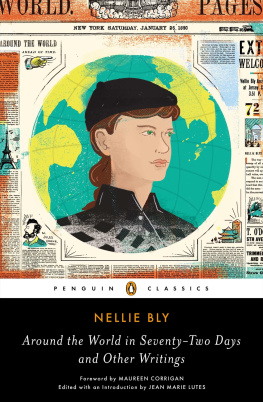
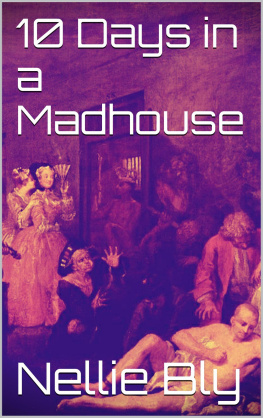

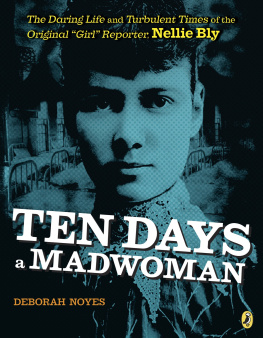
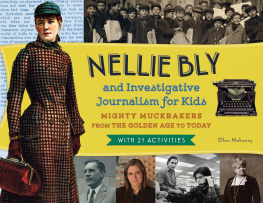
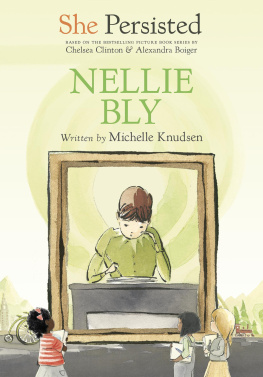
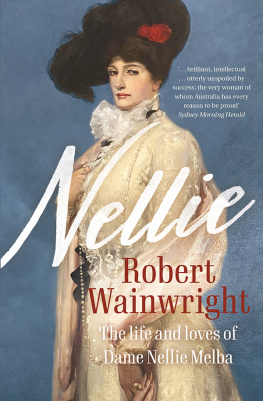


 CLASSICS
CLASSICS
